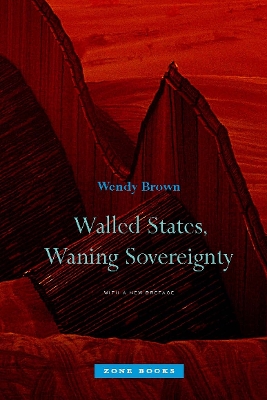A prize-winning examination of why nation-states wall themselves off despite widespread proclamations of global connectedness.
Why do walls marking national boundaries proliferate amid widespread proclamations of global connectedness and despite anticipation of a world without borders? Why are barricades built of concrete, steel, and barbed wire when threats to the nation today are so often miniaturized, vaporous, clandestine, dispersed, or networked?
In Walled States, Waning Sovereignty, Wendy Brown considers the recent spate of wall building in contrast to the erosion of nation-state sovereignty. Drawing on classical and contemporary political theories of state sovereignty in order to understand how state power and national identity persist amid its decline, Brown considers both the need of the state for legitimacy and the popular desires that incite the contemporary building of walls. The new walls-dividing Texas from Mexico, Israel from Palestine, South Africa from Zimbabwe-consecrate the broken boundaries they would seem to contest and signify the ungovernability of a range of forces unleashed by globalization. Yet these same walls often amount to little more than theatrical props, frequently breached, and blur the distinction between law and lawlessness that they are intended to represent. But if today's walls fail to resolve the conflicts between globalization and national identity, they nonetheless project a stark image of sovereign power. Walls, Brown argues, address human desires for containment and protection in a world increasingly without these provisions. Walls respond to the wish for horizons even as horizons are vanquished.
- ISBN10 1935408038
- ISBN13 9781935408031
- Publish Date 27 June 2017 (first published 10 September 2010)
- Publish Status Active
- Publish Country US
- Imprint Zone Books
- Format Paperback (US Trade)
- Pages 184
- Language English
- URL http://mitpress.mit.edu/9781935408031
